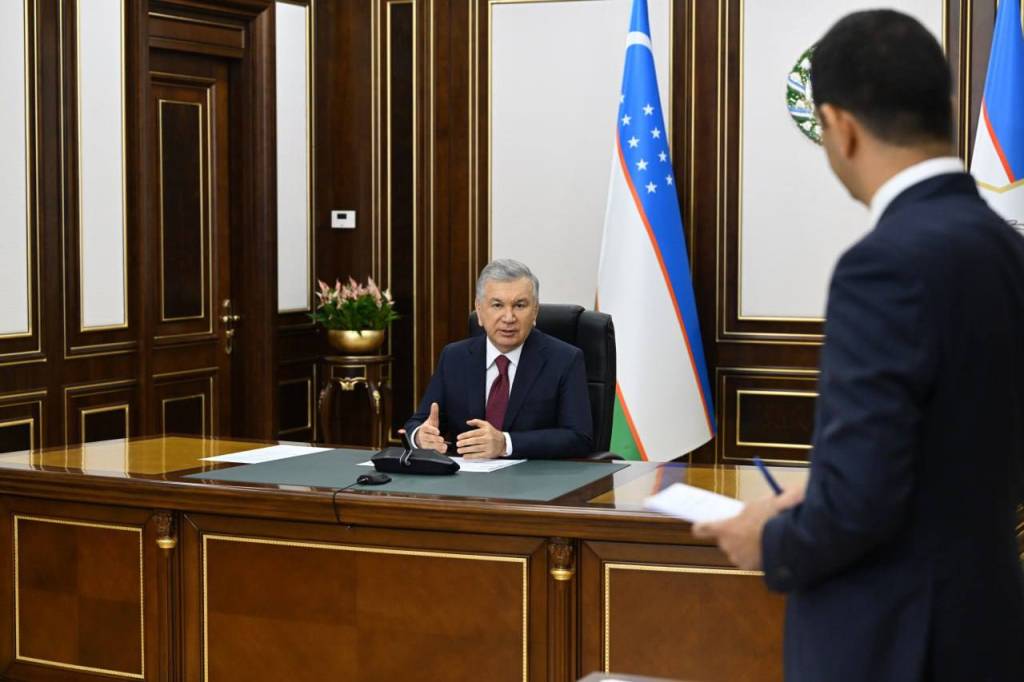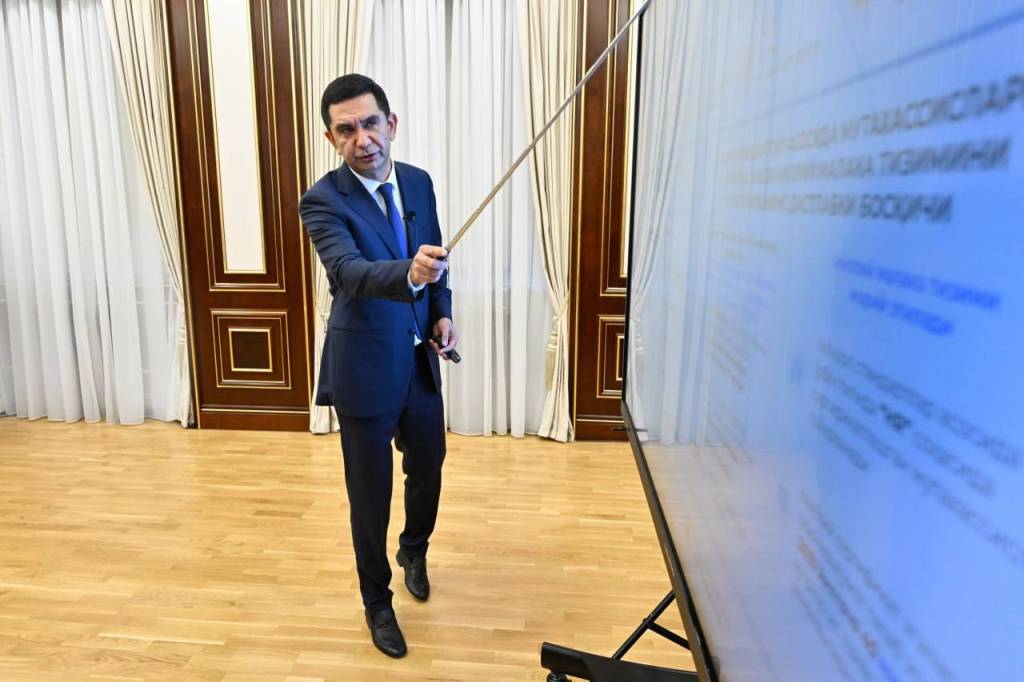New approaches in employment and vocational education are presented
President Shavkat Mirziyoyev reviewed a presentation on new approaches in the national employment system and vocational education.
Since the beginning of the year, models based on international experience have been introduced in this field. Notably, the banking system has begun actively cooperating with mahallas to support employment initiatives. In the first half of the year alone, more than 3 million people were engaged in income-generating activities.

The system established to reduce poverty and the funds allocated for this purpose are already yielding results – by July 1 this year, the national poverty rate had decreased to 6.8 percent.
The quality of vocational education remains a crucial factor in enhancing employment opportunities. This requires expanding cooperation with employers, improving workforce training, and actively engaging the private sector. A significant issue in training specialists remains the mismatch between educational programs and labor market demands.

Specific regulations in the area of labor relations create challenges for business entities, especially small enterprises. Digital technologies are not being fully utilized in the hiring process. Existing regulations also fail to encourage employers to publicly post job vacancies, which distorts labor market statistics and hinders accurate analysis and the development of relevant training programs.
The presentation included new initiatives and measures designed to address these challenges.
According to the new approaches, employment services are expected to transition from supervisory bodies to partner-oriented institutions that serve employers. Specifically, it is proposed to eliminate penalties for failing to provide information on job vacancies and for rejecting referred candidates. This will enable employment services to collect reliable data and more effectively direct job seekers to suitable positions, while leaving the final hiring decision to the employer.
To implement this model, a dedicated electronic platform will be developed. It will initially be launched in test mode in Tashkent and subsequently expanded nationwide.
Additionally, vacancies for which it is difficult to find qualified specialists will be included among the priority areas of vocational training, enabling targeted workforce development.
To improve the quality of vocational education, plans are in place to involve private sector representatives in the activities of Vocational Skills Centers, with certain centers to be specialized in specific industries.
Responsible officials have been instructed to transition to a three-tiered system of vocational education. In particular, the introduction of free online video courses is envisioned, along with the provision of opportunities for employed citizens to undergo retraining or skills enhancement through the use of professional vouchers.
The Head of State emphasized that the preparation of qualified personnel is one of the key factors in reducing unemployment and poverty in the country.
UzA
 Ўзбекча
Ўзбекча English
English Русский
Русский




